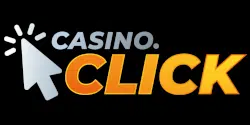Virginia Online Casinos
Online gambling is not yet legal in Virginia. However, preliminary discussions regarding the potential legalization of Virginia online casinos indicate that lawmakers hold a generally favorable perspective on the matter.
Currently, legal Virginia online gambling options are limited to sports betting, pari-mutuel horse racing wagering, and online lottery sales. Additionally, individuals can use sweepstakes casinos to play casino-style games with opportunities to win real cash prizes.
This report examines the prospects of legalizing online casinos in Virginia and related matters, including:
- Frequently asked questions
- Favorable factors and challenges for legalization efforts
- Potential regulatory frameworks
- Economic opportunities of a regulated Virginia online gambling market
Sweepstakes Casinos in Virginia
 35 Free Sweepstakes CoinsWOW Vegas Promo Code: None Needed
No purchase necessary. Void where prohibited by law. 18+, T&Cs Apply. Gambling Problem? Call 1-800-GAMBLER
35 Free Sweepstakes CoinsWOW Vegas Promo Code: None Needed
No purchase necessary. Void where prohibited by law. 18+, T&Cs Apply. Gambling Problem? Call 1-800-GAMBLER
 200K GC + 20 SC + 10 Free SpinsCasino.Click Promo Code: None Needed
Gameplay can be harmful if not kept in control, please play responsibly. See https://casino.click/responsible-gaming. NO PURCHASE NECESSARY to enter Sweepstakes. SWEEPSTAKES ARE VOID WHERE PROHIBITED BY LAW. See T&Cs. Casino Click Social Gaming Platform is only open to Eligible Participants, who are at least eighteen (18) years old or the age of majority in their jurisdiction (whichever occurs later) at the time of entry. For detailed rules, see https://casino.click/sweeps-rules.
200K GC + 20 SC + 10 Free SpinsCasino.Click Promo Code: None Needed
Gameplay can be harmful if not kept in control, please play responsibly. See https://casino.click/responsible-gaming. NO PURCHASE NECESSARY to enter Sweepstakes. SWEEPSTAKES ARE VOID WHERE PROHIBITED BY LAW. See T&Cs. Casino Click Social Gaming Platform is only open to Eligible Participants, who are at least eighteen (18) years old or the age of majority in their jurisdiction (whichever occurs later) at the time of entry. For detailed rules, see https://casino.click/sweeps-rules.
Sweepstakes casinos replicate the experience of traditional online gambling while maintaining their legality through a distinct operational model.
Rather than wagering with cash, players use virtual tokens, typically called Gold Coins, and may earn sweepstakes entries, often called Sweeps Coins, which can be redeemed for cash prizes.
Players may also receive Sweeps Coins as bonuses when purchasing Gold Coins, generally at a 1:1 ratio per dollar spent. For instance, a $20 Gold Coin purchase typically provides $20 in Sweeps Coins, which can be used to play casino-style games such as:
In Summary: Sweepstakes casinos have become the default online gambling alternative for many Virginias, delivering an experience comparable to real-money casinos.
Are Sweepstakes Casinos Legal in Virginia?
Sweepstakes casinos are legal in Virginia because they operate under a sweepstakes model that distinguishes them from traditional gambling.
Their legal standing hinges on the ability for players to participate for free and without making a purchase. It’s possible to purchase Gold Coins and receive free Sweeps Coins as a bonus, but it’s not necessary to do so.
Although sweepstakes casinos comply with Virginia law, they remain unregulated. Consequently, players must exercise caution when choosing where to play and only use reputable sweepstakes casinos.
Recommended Virginia Sweepstakes Casinos
Legal Threats Facing Sweepstakes Casinos in Virginia
To date, Virginia online gambling regulators have not taken enforcement actions against sweepstakes casinos.
However, regulators in some states have issued cease-and-desist orders to sweepstakes operators, accusing them of offering online gambling under pretenses.
In others, lawmakers have proposed legislation prohibiting sweepstakes casinos and similar platforms designed to mimic gambling.
Although none of those actions have occurred in Virginia, it’s conceivable that regulators will eventually target the sweepstakes model.
Attorney General Actions
Virginia’s Attorney General has not yet moved against sweepstakes operators via actions such as cease-and-desist orders.
However, attorneys general in other states, including Michigan, Maryland, Delaware, and Connecticut, have issued such orders. These actions preview potential future developments should Virginia’s Office of the Attorney General choose to intervene.
Prominent sweepstakes casino operators have withdrawn from multiple states following these demands.
Legislative Threats
Sweepstakes casinos in Virginia face the threat of legislative action.
Historical precedent exists within the Commonwealth for targeting sweepstakes-based operations. For example, Virginia enacted SB 1738 in 2019, banning “sham sweepstakes” gaming machines.
At the time, certain storefronts permitted customers to purchase items of value in exchange for tokens used on gambling machines or to access online casino games within the premises. Lawmakers passed the bill to prohibit such operations, even if they provided mechanisms for customers to play without making a purchase.
Although SB 1738 focused on physical machines rather than online platforms, its historical context suggests potential future actions for their online equivalents (sweepstakes casinos).
Will Virginia Legalize Online Casinos?
With the rise of online gambling alternatives and neighboring states advancing toward iGaming, the key question facing Virginia is whether it will legalize online casinos.
This question came to the forefront of legislative discussions in 2025, but the outcome is still pending.
Senator Mamie Locke’s SB 827 was Virginia’s first serious attempt to legalize online casinos. Although the bill was deferred indefinitely for further study, the surrounding debate highlights the opportunities and obstacles facing future online gambling legislation in Virginia.
Factors Favoring Legalization
Legalization Challenges
How Virginia May Regulate Online Casinos
Lawmakers can draw inspiration from other states’ experiences, past Virginia proposals, and model legislation from the National Council of Legislators from Gaming States (NCLGS).
One recent Virginia online gambling proposal (SB 827, 2025) provides a potential framework:
- Regulator: The Virginia Lottery Board would regulate online gambling, aligning with its role in overseeing sports betting and casinos. Alternatively, a new Virginia Gaming Commission could emerge from recent efforts to streamline regulation
- Eligible Licensees: Licensed brick-and-mortar casinos could apply for Virginia online gambling licenses
- Three Skins: Each licensee could partner with up to three commercial brands (e.g., BetMGM Online Casino, Bet365 Casino) to operate distinct online casino platforms (“skins”)
- Licensing Fees: A $1 million initial licensing fee for a five-year term
- Taxes: A 15% tax on gross gaming revenue
Virginia Online Gambling Market Potential
The Virginia online gambling market has massive economic and tax revenue potential. Multiple firms have estimated that annual gross gaming revenue (GGR) will approach $1.5 billion.
Third-Party Market Forecasts
A 2024 Analysis Group study projected that Virginia online casinos could generate $745 million in GGR in their first year, increasing to $1.33 billion after five years.
Similarly, Vixio GamingCompliance’s 2024 iGaming study estimated $1.44 billion in GGR at market maturity.
Market Potential Scaled for Population
The above projections predate 2024’s record-breaking figures in multiple states. For instance, New Jersey (pop. 9.5 million) and Michigan (pop. 10.1 million) each saw roughly $2.4 billion in operator GGR.
Virginia’s population (8.8 million) is roughly 92% of New Jersey’s and 87% of Michigan’s. If the Virginia online gambling market achieves just 80% of these states’ performances, it could reach annual GGR of $1.9 billion after five years.
Potential Virginia Online Gambling Tax Revenue
Depending on the tax rate, Virginia could earn between $199.5 million and $665 million in tax revenue annually.
| Market Estimate (Annual GGR) | Tax Revenue (Under a 15% rate) | Tax Revenue (Under a 35% rate) |
| $1.33 billion | $199.5 million | $465.5 million |
| $1.44 billion | $216 million | $504 million |
| $1.9 million | $285 million | $665 million |
Note: These figures are based on the above projections and discount any impacts tax rates may have on the actual market size.


